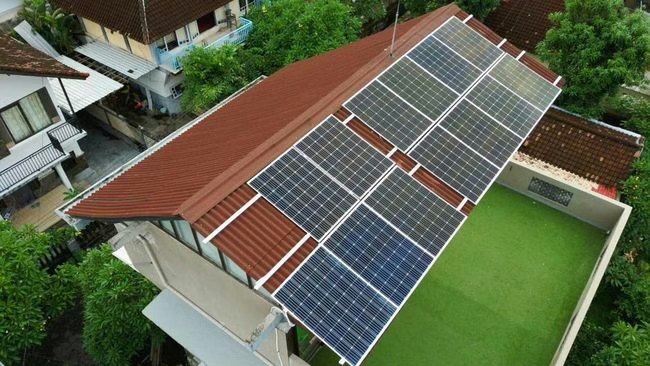The sunniest, and therefore the greenest. Bali's authorities have decided to take full advantage of the island's favorable geographical position and strive to achieve energy independence from Java as soon as possible. This will be pursued through the development of clean energy. Governor I Wayan Koster launched a program for the accelerated installation of solar panels on building rooftops. The goal is to achieve energy independence and zero emissions by 2045, 15 years ahead of Indonesia's national plan.

Bali's dependence on electricity produced using fossil fuels, including supplies through the Java–Bali submarine cable, is considered too risky for the island's energy security. Therefore, the provincial government seeks to reduce this dependence. Under the governor's new program, all government institutions, schools, universities, hotels, and markets must install solar panels on their roofs. Governor Koster emphasizes that a swift transition to clean energy is essential, as the island's needs are growing every month.
The initiative has been supported by the Institute for Essential Services Reform (IESR), which dubbed the program a "quick and flexible solution that matches Bali's geographical and socio-economic conditions."
According to experts, Bali has a solar potential of 22 gigawatts, of which 3.3–10.9 GW can be realized through rooftop installations. However, less than 1% of this potential is currently being utilized.
"It's a real irony. On one hand, we have enormous solar energy potential. On the other, we are still heavily reliant on supplies from Java, which can be disrupted at any moment," remarked IESR Executive Director Fabby Tumiwa.
According to him, rooftop solar power plants combined with energy storage systems (BESS) are the quickest and most affordable way to enhance Bali's energy security and reduce the load on the state energy operator PLN in the face of growing electricity demand post-pandemic.
The Chairwoman of the Association of Solar Panel Manufacturers (APSA), Gusti Ayu Kade Widiastari, believes that implementing the program will require around 900 billion Indonesian rupiahs (approximately 56 million USD). She underscores the importance of collaboration between local entrepreneurs and the state energy company PLN for the successful implementation of the project.
Bali has set a goal to achieve zero greenhouse gas emissions by 2045, while all of Indonesia plans to decarbonize its energy system by 2060 or slightly earlier. Therefore, the successful implementation of the rooftop solar panel program could not only ensure Bali's energy independence but also serve as an example for other regions of Indonesia.


You can add one right now!